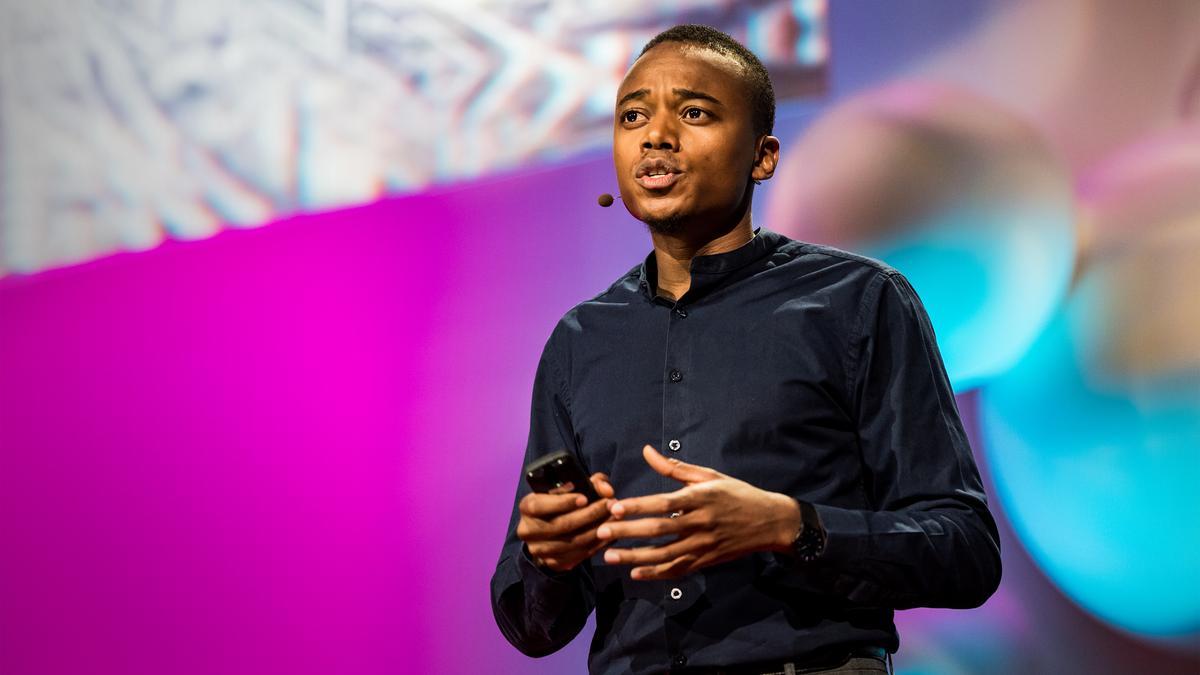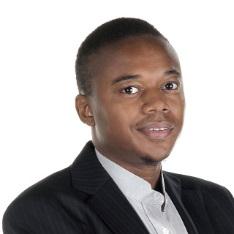You Don’t Have to Be an Expert to Solve Big Problems Summary
6 min read ⌚
 “I’m no expert” shouldn’t be an excuse to avoid tackling a big problem.
“I’m no expert” shouldn’t be an excuse to avoid tackling a big problem.
On the contrary – it should be a stimulus.
Because, Tapiwa Chiwewe says in an inspirational 2017 TED Talk, “You Don’t Have to Be an Expert to Solve Big Problems.”
Who Should Read “You Don’t Have to Be an Expert to Solve Big Problems”? And Why?
A nine-minute lesson in anything is always worth the time.
Hell, you need more just to take a shower!
So, do yourself a favor and skip the rationales in this case: just listen to Tapiwa Chiwewe’s inspiring TED Talk.
Even if you don’t like it, you’ll lose nothing more than 518 seconds!
 About Tapiwa Chiwewe
About Tapiwa Chiwewe
Tapiwa Chiwewe is a manager at IBM Research Africa with a Ph.D. in Computer Engineering from the University of Pretoria.
He began his career in academia, serving as a junior lecturer at his alma mater, but soon he moved on to CSIR (the South African Council for Scientific and Industrial Research), where he worked as a senior engineer in the mechatronics and micro manufacturing group.
In 2015 he joined IBM Research, where he has worked on several large-scale projects, related to solar system design, asset maintenance optimization, and, most relevantly, air quality management.
“You Don’t Have to Be an Expert to Solve Big Problems PDF Summary”
Let’s start this summary with some staggering statistics.
Namely, according to data from the World Health Organization, in 2012, household and ambient pollution was responsible for one in seven deaths worldwide, mostly, of course, in low- and middle-income countries.
Yes, that means that malaria and HIV/AIDS bring about fewer deaths than pollution; and that even in Africa, more children die from air pollution than from, say, childhood malnutrition and unsafe sanitation.
Even more, according to a study by the Organization for Economic Cooperation and Development, this comes to a huge economic cost as well: almost half a trillion US dollars in 2013 alone!
Now, Tapiwa Chiwewe is a South-African computer engineer, who works as a manager of the advanced and applied AI group at IBM Research Africa, and, really, shouldn’t know – or even, as brutal as it may sound, care about – these things.
After all, there are many people in the world who are much more competent than him in the field and who, consequently and deservedly, earn money from doing just that.
And that’s what Tapiwa Chiwewe believed as well for most of his life.
However, one day, while driving to work in Johannesburg, he noticed “a haze hanging over the city,” and, as he soon realized, this haze was actually “an enormous cloud of air pollution.”
Appalled by the possibility that his beloved city of “bright and vivid sunsets” may be overrun by “a dull haze” in the future, Chiwewe decided to do something.
Of course, knowing absolutely nothing about pollution, the first thing he could do was fairly simple: learn.
And that’s how he discovered the information we listed in the introduction to this summary – in addition to, we suppose, hundreds and hundreds of similar facts.
But, obviously, that wasn’t enough: it merely proved to him that air pollution was a serious problem, and that, if untreated, it may result in an ecological catastrophe of biblical proportions.
So, Chiwewe started consulting city officials and local scientists to get to the bottom of the problem and help them find a solution together.
What he learned during the process was something nobody should ever forget:
Even if you’re not an expert in a particular domain, your outside expertise may hold the key to solving big problems within that domain. Sometimes the unique perspective you have can result in unconventional thinking that can move the needle, but you need to be bold enough to try. That’s the only way you’ll ever know.
So, you already know that this story has a somewhat happy ending.
Unsurprisingly – let us not forget, we’re dealing with a computer engineer here – the happy ending, in this case, is an “online air-quality management platform.”
Designed by Chiwewe and fed with weather and air pollution records provided by the experts, the platform uses AI and ML algorithms to detect and predict pollution trends in real-time.
Its success?
A 120-day pilot program demonstrated “a tight correlation” between the forecasting data and the data gathered on the ground.
In other words, the platform could indeed see into the future!
The benefits are numerous, and it would suffice to merely list them:
Citizens can make better decisions about their daily movements and about where to settle their families. We can predict adverse pollution events ahead of time, identify heavy polluters, and they can be ordered by the relevant authorities to scale back their operations. Through assisted scenario planning, city planners can also make better decisions about how to extend infrastructure, such as human settlements or industrial zones.
Chiwewe’s beautiful point:
The platform was the product of a collaborative effort.
Just as he couldn’t do it without the experts, the experts wouldn’t have been able to do it without him.
And he was – and still is – no expert.
So, the next time you come across a big problem – especially one which may affect you or the wellbeing of your children – don’t absolve yourself from responsibility because of a lack of expertise.
As Chiwewe’s actions have shown, you really don’t have to be an expert to help others solve even the biggest problems out there.
Key Lessons from “You Don’t Have to Be an Expert to Solve Big Problems”
1. Air Pollution Is a Serious Problem
2. Your Outside Expertise May Hold the Key to Solving Big Problems
3. We Should Tackle Big Problems by Collaborating
Air Pollution Is a Serious Problem
The World Health Organization attributed almost 14 percent of all deaths worldwide to household and ambient air pollution.
In other words, air pollution is responsible for more deaths than HIV/AIDS, malaria, or malnutrition.
It’s a serious problem – and it needs to be solved!
Your Outside Expertise May Hold the Key to Solving Big Problems
Tapiwa Chiwewe is a computer engineer, but he didn’t want to sit idly aside once he noticed the smog-covered skyline of Johannesburg.
So, he contacted experts and government officials to get to the bottom of the problem.
The result?
He learned a lot from them, but they learned a lot from him too!
Namely, that it is possible to use Artificial Intelligence and Machine Learning algorithms to predict pollution trends.
So, together, they built an online air-quality management platform which basically works the same way the weather forecast does!
And that magnificent thing happened because Chiwewe didn’t want to remain quiet, freeing himself from responsibility with phrases such as “I’m no expert.”
He actually wanted to do something.
And he got the opportunity.
We Should Tackle Big Problems by Collaborating
Just as genius isn’t born in isolation, great ideas rarely emerge where there is no interaction and collaboration.
So, when they read the story of our times, may future generations remember not exceptional men with extraordinary biographies, but united humanity with life-affirming goals and imperishable dreams.
Like this summary? We’d like to invite you to download our free 12 min app, for more amazing summaries and audiobooks.
“You Don’t Have to Be an Expert to Solve Big Problems Quotes”
Even if you're not an expert in a particular domain, your outside expertise may hold the key to solving big problems within that domain. Share on X
Sometimes the unique perspective you have can result in unconventional thinking that can move the needle, but you need to be bold enough to try. Share on X
Sometimes just one fresh perspective, one new skill set, can make the conditions right for something remarkable to happen. Share on X
Our willpower and imagination are a guiding light, enabling us to chart new paths and navigate through obstacles. Share on X
So… the next time you find that there's some natural curiosity you have that is being piqued, and it's about something you care about, and you have some crazy or bold ideas… ask yourself this: Why not? Share on X
Our Critical Review
Even though Tapiwa Chiwewe oversimplifies some of the barriers non-experts face when moving from one field to another, “You Don’t Have to Be an Expert to Solve Big Problems” is still a powerful message.
The bottom line is you lose nothing if you try.
And resistance and motivation shouldn’t distract you; on the contrary, they should motivate you even further.
Concise and thought-provoking.
Emir is the Head of Marketing at 12min. In his spare time, he loves to meditate and play soccer.


 About Tapiwa Chiwewe
About Tapiwa Chiwewe




